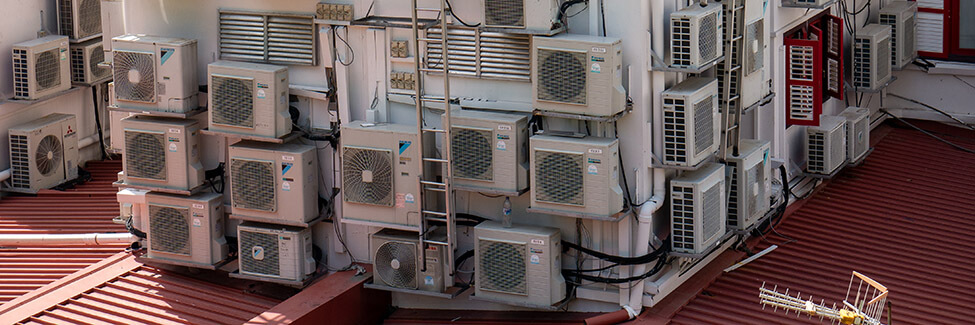
Should I Repair or Replace My HVAC System?
A functioning HVAC system is a must in every modern American home. These systems don’t just make indoor spaces comfortable, they prevent health issues by circulating and cleaning air.
But what happens when a critical HVAC system component stops working? Repairing or replacing an HVAC system isn’t always simple to deal with on your own, and it can often requires the assistance of a professional. Looking locally can help – if you’re in the Twin Cities, for example, you’d look for a Minneapolis HVAC repair specialist.
Understanding whether you should repair or replace HVAC system components can ultimately mean less stress and lower bills. The goal of this article is to help you make that decision, so let’s dive in.
HVAC System Warning Signs
Air conditioning systems all work on the same principles, and paying attention to early warning signs can let you catch small issues before they become catastrophic. Here are a few warnings to consider:
Clogged Filters
A filthy or clogged AC filter can often prevent cold air from flowing properly. You can remedy the problem by replacing or cleaning the air filter. You can purchase a new filter at your local supermarket or home improvement store, but be sure to note the size of your current air filter. Air filters need to be changed anywhere from every month to every 6 months depending on use.
Leaking Parts
Unwanted particles can enter your indoor space if the wrong parts are leaking. On top of that, your AC system’s effectiveness can decrease dramatically if your components spring fluid or air leaks. The easiest way to check for a leaking AC system is to search for liquid that isn’t coming from the condenser line.
Electrical Issues
Electrical components are found in all modern HVAC systems. Electrical problems can be related to a furnace’s ignition system, an unresponsive thermostat, or even fraying AC wiring.
In the case of ignition issues, check if your device clicks irregularly or fails to light. Often, electrical issues will require a professional since high voltage appliances can be quite dangerous.
Worn Components
Parts of HVAC equipment wear down as they get older. Belts and motors, for example, wear down with time, reducing the effectiveness of your HVAC system. If your HVAC system isn’t working correctly or squeaks often, schedule an inspection with a certified expert. Repairs aren’t cheap, but catching HVAC system issues early will save you considerable cost in the long run.
The Age of Your HVAC System
Air conditioners should be replaced with newer, more energy-efficient versions after 10-20 years. The range for furnaces is more generous, at between 15-25 years.
This is because older units have lower Seasonal Energy Efficiency Ratios (SEER) than modern versions and run substantially less effectively. Fifteen years ago, the typical efficiency rating was 10 SEER; currently, it is 15 SEER. If your air conditioner was built over a decade ago, it might not satisfy modern federal efficiency regulations, resulting in additional energy costs.
You can also use the industry “5,000 rule” to assist you in deciding if that isn’t enough. As a quick estimate, if the air conditioner’s cost of repair multiplied by its age is greater than $5,000, the air conditioner should be replaced.
The Efficiency of the HVAC Component
If your air conditioner is over a dozen years old, runs continually, fails to chill your house effectively, and inflates your energy bills, then it’s inefficient.
If this sounds familiar, you should consider replacement it. Newer HVAC components save money on energy bills. In addition, new AC units and furnaces have high-efficiency features like smart thermostat compatibility, dehumidifiers, variable-speed motors, and scroll compressors to expand their use.
If replacing your old HVAC system isn’t a viable option, there are alternatives to improving the air quality in your home in the meantime. Some upgrades, like a programmable thermostat, improve temperature management for more efficient system operation. In more humid climates, appliances like dehumidifiers can keep your house cool and pleasant while also decreasing your need for air conditioning.
HVAC System Size
Proper HVAC system sizing has a significant impact on the system’s energy consumption and efficiency. If the system is too big, it’ll waste energy. Alternatively, if it’s too small, it’ll struggle to maintain the right temperature and wear out more quickly. A qualified HVAC contractor will measure your house to guarantee that any new system you install is the right size for your property. For an estimate, view our Heat BTU Calculator and Cooling BTU Calculator.
If your energy cost is higher than you’d like it to be, a new system may be able to solve this issue. Based on the efficiency of your current system, a trained HVAC professional will be able to calculate your savings over time.
Time Spent at Home
Homeowners who want to replace their AC unit should think about how much time they anticipate spending at home as well as how long they plan on owning that home. You can examine the return on investment offered by your HVAC specialist. If you do not intend to stay in your house for much longer, it may be more cost-effective to fix the HVAC system instead of purchasing a new one.
If you’re planning to sell soon, speak with a local real estate agent for more information. For example, if your house fails the “50% rule”, but you expect to sell soon, consider how a new system would affect your property’s total worth. If a new HVAC system offers value, you may decide that the expense of replacement is justified.
Conclusion
Check with a qualified HVAC professional at regular intervals to see whether your HVAC system can be fixed or if it needs to be replaced. Depending on the problem, the technician may be able to resolve it without the need to replace the device. However, replacement may be your only alternative if the condition is beyond repair or the unit is too old or inefficient to repair. And while you’re looking out for fixes, read 5 Common HVAC Problems.
In the end, the person who makes the final decision is you.
Still have questions? Ask an HVAC expert directly via chat or phone.
Published on 2022-04-03 by HVAC Ninja Team
Last updated on 2022-04-03


